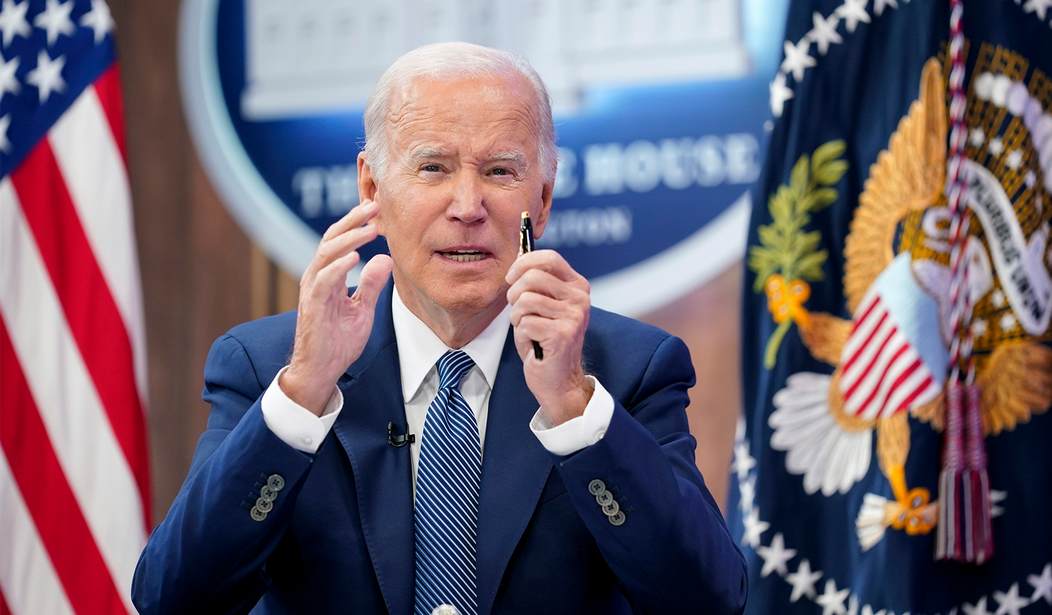The Biden administration wants to destroy the idea of “independent contractors” in most industries by approving a rule that would severely restrict “freelance” classifications, thus forcing previously independent workers to reclassify as “employees” and be subject to withholding, social security, workers’ compensation, and overtime restrictions.
A law with many of the same restrictions was passed in California in 2020. AB 5 was met with fierce resistance from independent truckers, ride-sharing companies like Uber and Lyft, and other industries where independent contractors were prevalent.
For employees to be considered “independent contractors” in California, they must meet the “ABC Test” — three specific criteria used to determine an employee’s classification.
Under AB 5, all workers are assumed to be employees, not contractors, unless the employer can affirmatively satisfy the ABC test by proving three things: (A) that the worker is free from the control and direction of the hirer when performing the work, both under the contract for the work and in fact; (B) that the worker performs work that is outside the usual course of the hiring entity’s business; and (C) that the worker is customarily engaged in an independently established trade, occupation or business of the same nature as that involved in the work performed.
The Biden administration’s new rule — still in its early stages — would “make it more difficult for workers to be classified as independent and thus to force many of them to be reclassified as employees, whether they like it or not,” according to Scott Lincicome, director of General Economics and Trade at the Cato Institute.
Such a rule makes sense if you think, as many in Washington seem to do, that independent work in the United States is primarily about a handful of poor gig workers forced to toil as contractors by a nefarious employer abusing his market power to save a few bucks on taxes/benefits and to avoid various labor protections. Thus, the theory goes, state and federal governments must step in to ensure that almost every worker is classified as an employee so they can rightly enjoy the fruits of a highly regulated U.S. labor market. (More on those supposed fruits another time.)
As Ilana Blumsack and I detail in Empowering, however, the reality of independent work in the United States is far different from what proponents of the Biden rule would have you believe. And implementing that rule—or others like it—could harm millions of American workers, and the U.S. economy more broadly, for no good policy reason.
Most of the writers here at PJ Media are independent contractors, although some of the editors are employees of Salem Media. Depending on how the new rule is written, it could make us Salem employees thus subject to the rules and regulations governing employees.
Why does the Biden administration hate freedom? People work freelance almost exclusively because they want to, not because they’re forced to do it.
Third, and again contrary to the narrative, most Americans engage in independent work because they prefer the arrangement over traditional employment—not because they’re forced into it by some greedy business owner. A big driver of this preference is the flexibility and control—over schedule, location, clients, public affiliations, etc.—that a standard employee usually lacks. A 2019 survey, for example, revealed that 70 percent of independent workers cite flexibility as a major reason for engaging in independent work. Economists also recently found that nearly half (46 percent) of independent workers choose to freelance because they can’t work a traditional 9-to-5 job, often because of either medical issues or family commitments.
In short, the new rule is unnecessary. Freelancers, by and large, don’t need “protection” from greedy capitalists. They may need protection from an over-zealous government, however.
Congressional Democrats passed their own independent contractor law in the House last year. The PRO Act would have embedded the ABC test into federal law, thus reclassifying dozens of jobs as “employees.” But the Biden rule would go far beyond that.
- The proposed rule would expand the current definition of “control exerted by the employer” to include “detailed discussions of … scheduling, supervision, price-setting, and the ability to work for others,” while “not limiting control to control that is actually exerted.” This is essentially the “A” prong of the ABC test, broadening the definition of “control” to reclassify as many workers as possible as employees.
- The rule would consider “whether the work is integral to the employer’s business rather than whether it is exclusively part of an ‘integrated unit of production.’” This change would consider work that is separate from a company’s main functions but is still a core part of the organization’s purpose as the work of an employee, not an independent worker. Think of a freelance writer at a magazine. This is essentially the “B” prong of the ABC test.
It’s unclear how many workers in the U.S. would be reclassified as “employees.” But there are 51 million workers who classify themselves as “independent contractors,” and a large percentage of them would almost certainly be reclassified.
An interested party in this fight is the labor unions, who know that the more workers can be classified as “employees,” the easier it will be to organize them.










Join the conversation as a VIP Member